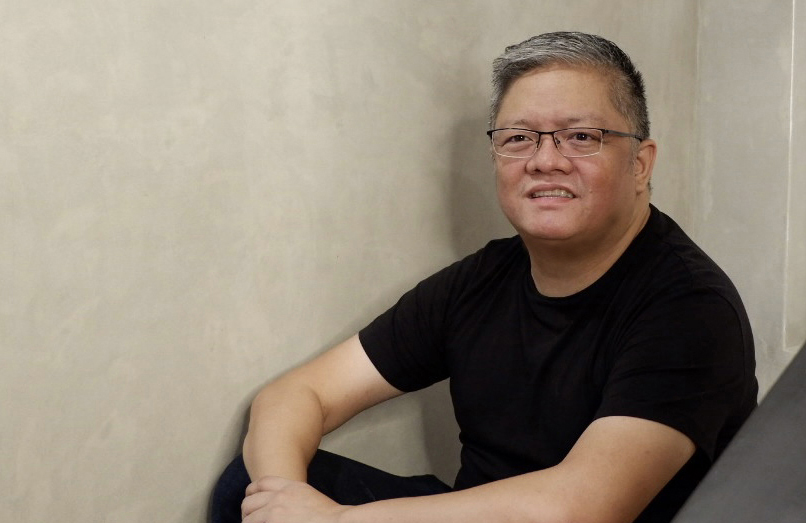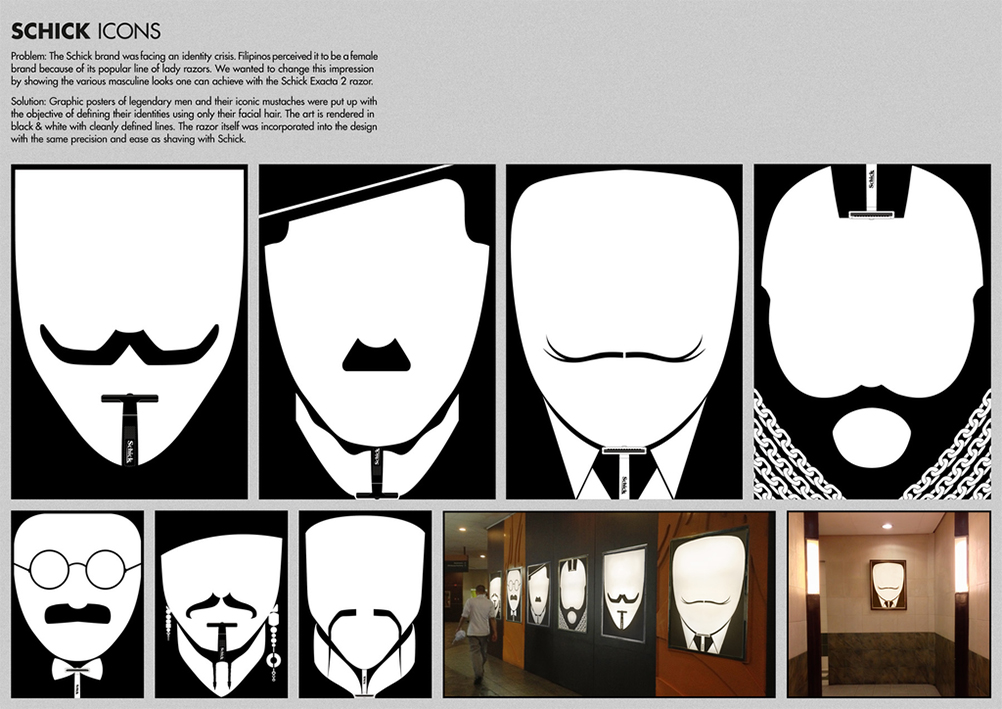Joe Dy’s lessons from the gap year

Joe Dy may be Wunderman Thompson Manila’s new Chief Creative Officer, but he’s no stranger to the agency. Back when it was known as JWT Manila, Dy served as Creative Director, where he scored a Cannes Gold Lion for 2013’s Schick “Icons” campaign. In 2015, he moved to McCann Worldgroup, where he worked with CEO Raul Castro to reinvent the Agency as one of the most-awarded in the country, scoring metal at Cannes (including his second Gold Lion), the Effies, Clio, Kidlat, and winning multiple AOY nods. In 2018, Dy was named to the Creative Guild of the Philippines’ Hall of Fame. Mikhail Lecaros reports.
Campaign Brief Asia caught up with Dy in late 2021 to find out just what’s kept him busy over the last two years, reflect on his career thus far, and get a glimpse of what we can expect from him, moving forward.
In 2020, Dy stepped down as MWG CCO, and remaining inactive in the ad industry until it was announced in mid-January 2022 that he would be joining Wunderman Thompson (nee JWT) as its Chief Creative Officer.
By the time you stepped down as MWG CCO after 5 years, you’d more than succeeded in your mandate to win metal. Tell us about your decision to call it a day.
Dy: it was a difficult decision. I’d just come back from judging at Cannes, and there were some things that I needed to take care of on the personal and the family side that needed to take priority. It was difficult, but from the beginning, what really attracted me [to MWG] was the challenge. Make no mistake, I would not have been able to do that without the team. So at the back of my mind, I was thinking, at least we were able to do what we set out to do, so I was leaving with a sense of accomplishment. So I think that was it. And maybe this next chapter was something that I had to venture into.
But that next chapter got delayed somewhat, didn’t it?
Dy: Yeah, well, my last day at McCann, I had planned to take what I would jokingly call my, “gap year”. I would tell the guys, “Hey, I’m gonna take a gap year, okay, travel, and do all that stuff, and then get in the family business. But my last day at McCann, and this is why there was no announcement [at the time], and no Facebook posts from me about me leaving – my last day at McCann was the first day of the [4-month] pandemic lockdown, March 16, 2020. So I figured, just keep this on the down low, there’s a lot more important things going on. So pretty much all my plans were scuttled. And I speak I think I speak for everyone when I say that.
What kept you busy over the next year and a half?
Dy: I was helping with the family business. We’re in fuel and construction, so I was traveling all over the place. At the same time, I was working on building my house, which actually started construction in 2018, but also got delayed by the pandemic. And being in the pandemic, I had a lot of time to read up on things, I actually learned how to 3D modeling for houses! Towards the end of last year, what really kept me busy was finishing my house. And then of course, I had my hobbies.
Fuel and construction – that’s a bit of a leap from advertising, isn’t it?
Dy: As it turns out, one of the good things about being in advertising is, if you’re really into the strategic thinking, beyond just the execution, you really get into the way the business works and how people think, and that helped me a lot in dealing with my family’s clients. As I got more and more into the family business, being able to multitask, like we do in the Agency, that helped me a lot – the training, it just kicked in.
What made you decide that now was the right time to come back to advertising?
Dy: Towards the end of 2021, my house was almost done, and I was wrapping up my commitments to the family business – I’d been helping supervise the construction of a water treatment plant, and it was nearly completed. To be really honest, I missed the creative stuff, it’s what makes me tick. I still love ideas, sometimes I would see ads or mobile, digital executions, and I find myself thinking about how I would have done them! It’s just fun for me, and that’s the kind of fun I like to cultivate, that I want people to feel when they’re working. I do have to find a better way of managing my health while I’m at it, because I didn’t do a very good job of it before. And then, you know, I’ve been getting on in years, so it’s gonna be harder and harder.
What did you learn in your 18 months away from the industry?
Dy: Working in the family business, I think I understand clients a little bit more. Not to say that I didn’t understand them before, but I see a little bit more of the apprehension, especially when it comes to money. It’s easy for creatives to demand, “Hey, you should shell out more money,” but clients are working with budgets and targets, so their concern is, “What’s the ROI?”
I’m not saying agencies aren’t aware, but there should be more of a conscious effort, given the amount of money that gets poured into these campaigns.
When you left advertising in 2020, people were still reporting to the office. In 2022, the Pandemic’s still going, and most agencies are still working from home. What are the biggest obstacles that you’ve observed and would want to address?
Dy: I think that the nice thing about the work from home setup is that it allows people to in their own environment but, at the same time, some boundaries need to be reset, and this isn’t exclusive to any one agency. When we were going to the office we were always on call, but now, it’s just, “Log in!”, so for a lot of people, there’s no semblance of a break. It’s easy to come up with mental health programs, but I think the key thing that needs to be addressed is the shortage of manpower. The time that people are being given to do the work isn’t what it used to be, and expectations are a lot higher, but the money’s a lot less, so how do you reconcile all of that?
Interestingly, a lot of the people resigning these days are the employees who were hired during the Pandemic, the ones who’ve only ever worked remotely and therefore only the vaguest idea of the culture they’ve supposedly become a part of.
Dy: Yeah, that’s key. And I think you said the perfect word, “culture”. If you don’t have the right culture, the right creative culture, then it just becomes just another job. Now, I’m just speculating, but I think that a lot of the people who are leaving now might not have had the chance to experience the actual cultures of the agencies they’ve joined, and that’s a challenge we all have to figure out. Because culture’s not built in meetings, it’s built in downtime, when you’re just talking or hanging out, so now it needs to be reinvented. To their credit, I think everyone’s trying, but until that’s solved, attrition is always going to be a problem, and not just in advertising.
What kind of agency culture are you looking to build now?
Dy: Something I learned from Dave (Ferrer, former CCO of JWT who passed away in 2019) is that it’s important to sit down with each member of the team and try to understand what their motivations are. You need to know what drives someone because you can’t expect them to think the way that you do – everybody’s different. Somebody might be a new father, someone else is a breadwinner, someone might have health problems, etc. I, as the leader, have to understand where they’re coming from, and help everyone around them understand, because we have to respect those motivations. Looking at them as individuals helps to create the culture I want to build.
I remember there was one person in McCann who told me that he wasn’t really into winning awards, and he was worried that I would reject him because of that. When I told him that wasn’t the case, he told me that what motivated him was coming up with work that goes into pop culture. And I said, well, let’s do it. It doesn’t have to win awards, but let’s find a way to do it that’s still good for the company. That way, even if your goals aren’t perfectly aligned, at least you can help each other in a way that’s not detrimental.
Building a creative culture is important, now more than ever. We work so much now on data-driven work, or having to work with platforms that have very, very strict parameters. But I think having a creative culture at the core of your workplace allows you to take those limitations and treat those challenges as something you can have fun with.
But there really isn’t a catch-all solution, and everything will depend on knowing what kind of people you have on your team in order to make them feel that they belong. Then, you can work on having fun.

